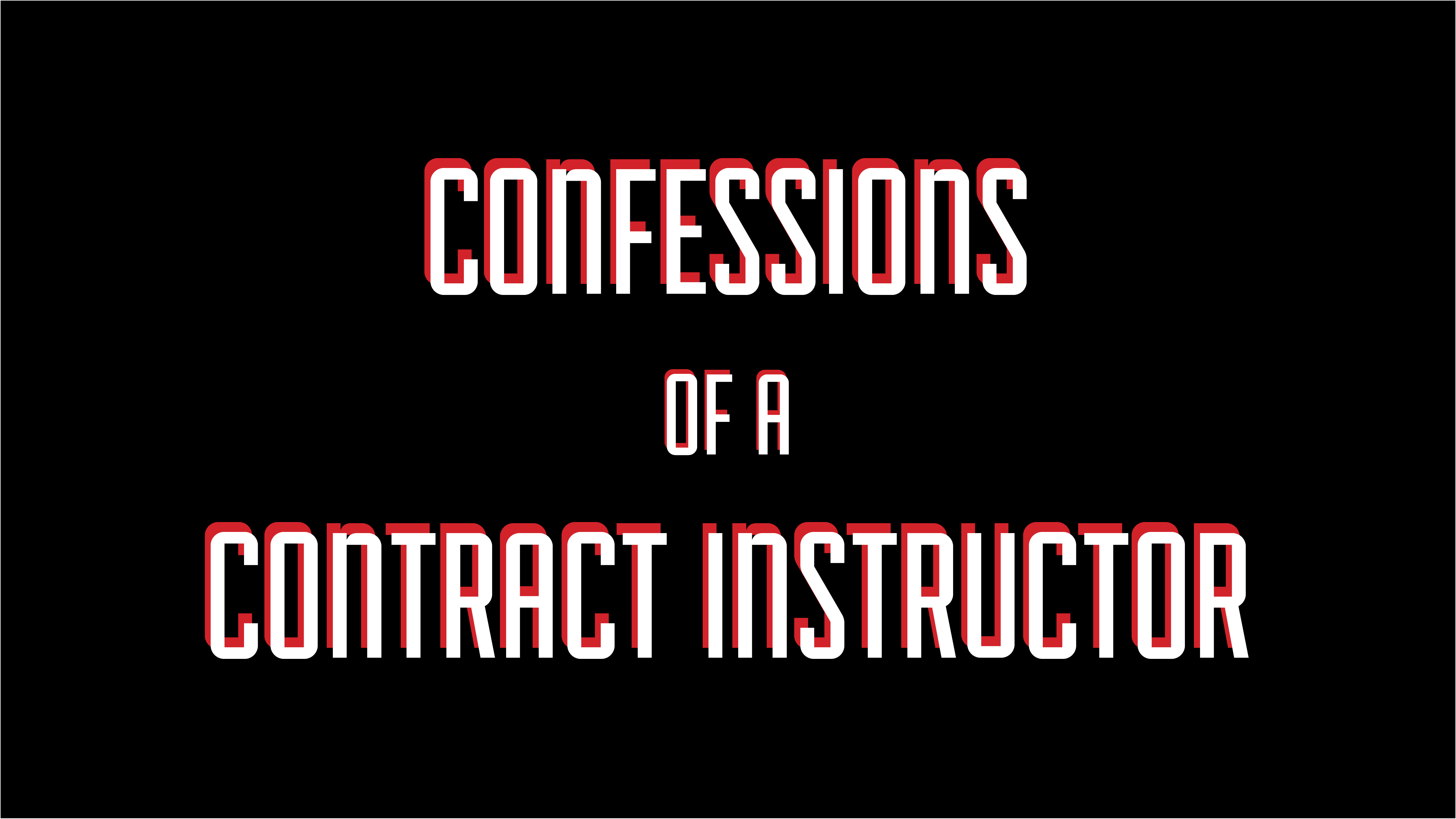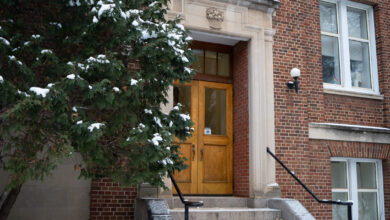 Alex Patterson
Alex PattersonThis series is written anonymously by contract instructors at the University of Alberta. Unlike fully-tenured professors who have a higher salary and job security, contract or sessional instructors often have a heavier course load, must renew their contracts each year, and earn significantly less than what most tenured professors make. But even though working conditions as a contract instructor aren’t great, obtaining a tenure position isn’t easy.
Read The Gateway‘s feature on contract academic staff: https://thegatewayonline.ca/2016/11/contract-instructors-feature/
In the last installment, I outlined the things that set contract instructors at the university apart (negatively) from our tenured colleagues: employment stability, pay, benefits and office space. Each of these issues can be and are sources of aggravation, irritation, at times even anger and resentment, but the thing that really gets many of us is the constant awareness that our job security has absolutely no relation to our qualifications, expertise or what others in our field may think of us, no relation to how hard we work or how well we do our jobs; in fact, seemingly no relation to anything in our control. It doesn’t take a psychologist to see how damaging this can be.
And when we talk with people who work in other sectors of the work world, we are reminded of just how outrageous and intolerable the whole situation is. In what other sector of society would it be considered okay to have people go through an apprenticeship that can span the better part of a decade and then be told that, although they are qualified to work as a journeyman, they will continue to be viewed and paid as an apprentice? The vast majority of contract instructors have the highest educational qualifications possible in our society (and anyone who has successfully completed a PhD will likely tell you that it was one of the most difficult things they have done in life); we have more than paid our dues and, as noted in an earlier installment, we continue to do the things that all academics do, whether in our teaching or our research and publications.
However, even though we do all these things and more, we have learned that it in fact higher education is anything but a meritocracy and the old dictum of “Work hard and do your best” actually has no correlation to job security, the sort of job security that people in most vocational situations take for granted. Most of us have a fairly constant sense that we are at the mercy of forces unseen, of decisions made in the hallways of power by people who do not know us and are almost certainly oblivious of the positive influence that we are trying to be in the lives of students that most of us genuinely want to help succeed during these crucial years of their lives.
The net effect of all this uncertainty and instability is a general feeling of discouragement, disillusionment, demoralization, depression and a host of other words starting in “d” — and that’s on a good day! Not a few of us have experienced moments of existential despair when we ask ourselves, “How the Foucault did I end up here?” For some of us, it has given new meaning to the phrase “terminal degree.” Not surprisingly, a 2014 study found that “NTT (non-tenure track) faculty perceive unique stressors at work that are related to their contingent positions” and suggested that “feeling commitment to an organization that fails to reciprocate the commitment may lead to negative reactions such as depression, anxiety, or stress.” No kidding.
There are many more stories out there on the web of the perils of contingent academic labour (especially the plight of adjuncts in the US higher education system). Stories with titles like Adjunctification: Living in the Margins of Academe – Are Adjunct Professors the New Fast-Food Workers? – Is Adjuncting the ‘Kiss of Death’? – Lip-Syncing to the Academic Conversation – Maybe I Should Have Stayed in Retail – Most university undergrads now taught by poorly paid part-timers – Professors on food stamps: The shocking true story of academia in 2014 – Sessional lecturers struggle while university administrators thrive – Suicide Is My Retirement Plan – Tales of the American Part-timer Reveal Pain, Sadness & Rage – Why Are Adjuncts Only Fit for the Glue Factory? And for a humorous take on the situation, check out True Adjunct Tales on Youtube.
In closing, I often wonder how those in positions of power would think, feel and act if they were in our shoes for a few weeks or months. Is there any sense in the halls of power of what we are going through? Is academia, which prides itself on analyzing, criticizing and deconstructing things — especially relations of power — willing to analyze, criticize and deconstruct itself and genuinely look at the imbalance in those dynamics of power when it comes to the status of contract instructors? I sincerely hope so… but I’m not holding my breath.




